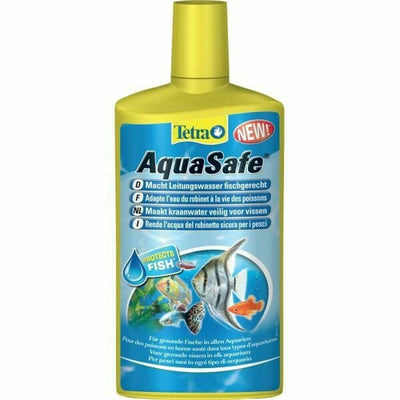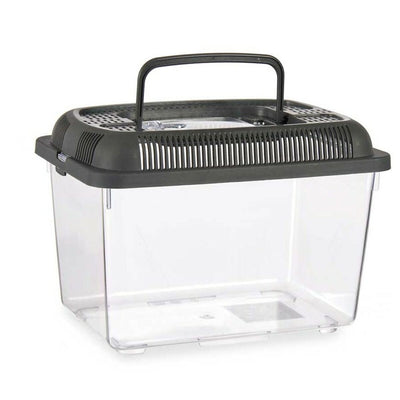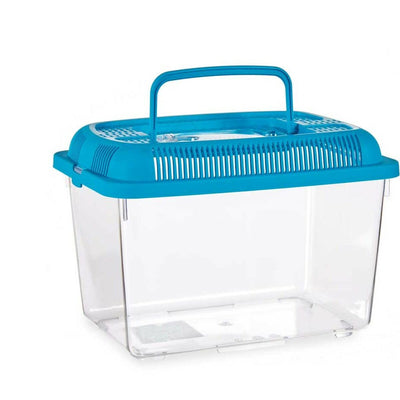
Aquatic animals
Aquatic Appeal: Exploring the fascinating world of underwater pets
Aquatic animals are fascinating and unique pets and will add a touch of marine wonder to your home. From colorful fish to interactive turtles – the possibilities are endless! Let's explore popular aquatic pets and what you need for their comfort.
Popular aquatic animals
Although there are numerous aquatic creatures that can survive in home conditions, people tend to choose the following animals as pets:
- Goldfish (Carassius auratus)
Goldfish are a classic choice for beginners. Its bright colors and graceful movements make it a real feast for the eyes. With proper care, they can live for many years in a well-maintained aquarium. Goldfish are social creatures that thrive in pairs or groups.
- Fighting fish (Betta splendens)
Bettas, also known as Siamese fighting fish, are known for their stunning fins and bright colors. They are relatively easy to care for and can be kept in smaller tanks. Betta fish are solitary animals, so it is important to keep them alone to prevent aggression.
- Tropical fish (various species)
Tropical fish such as tetras, guppies and angelfish offer a wide range of colors and patterns. They are ideal for community aquariums with appropriate compatibility considerations. Maintaining a stable tropical environment with the right temperature and water conditions is critical to their well-being.
- Red-eared slider turtle (Trachemys scripta elegans)
For those looking for a more interactive pet, the red-eared turtle is a popular choice. They need an aquatic facility with a lounging area to regulate their body temperature. Sufficient space, a suitable filter system and a balanced diet are essential for their health.
- Axolotl (Ambystoma mexicanum)
Axolotls, also known as Mexican migratory fish, are unique aquatic salamanders. They fascinate with their regenerative abilities and neotenic properties and retain their aquatic larval form throughout their lives. A spacious aquarium with cool water, hiding places and a soft surface is crucial for their well-being.
Setting up the home for your aquatic pet
Creating a comfortable environment is crucial to your aquatic animal's well-being. Here's what you need:
- Tank or aquarium
Depending on the type and space required, choose an aquarium with the right size. Make sure it has a secure lid to prevent escape.
- Filter system
A reliable filtration system is essential for maintaining water quality. Regular water changes are also necessary to remove impurities.
- Heating
Maintain a stable water temperature, especially for tropical fish and reptiles. Install a heater with a thermostat to regulate the temperature.
- lighting
Provide your aquarium with proper lighting to simulate natural day-night cycles. Some species may have specific lighting requirements.
- Decor and substrate
Add decorations, plants and substrate that match your pet's natural habitat. Make sure these elements provide hiding places and enrichment.
Caring for Aquatic Animals: A Detailed Guide
Having a pet comes with certain responsibilities. Here's what you need to know before getting an aquatic animal:
- Feed
Offer a balanced and species-appropriate diet. Research the nutritional needs of your specific aquatic animal and provide a variety of foods to ensure nutritional diversity.
- Water quality
Regularly test and monitor water parameters such as pH, ammonia, nitrite and nitrate levels. Adjust as needed to maintain a healthy aquatic environment.
- Health monitoring
Keep an eye on your pet's behavior, appetite and physical condition. Sudden changes can indicate stress or illness. If necessary, consult a veterinarian with experience dealing with aquatic animals.
- handling
Handle your aquatic pet gently and only when necessary. Some species, such as fish, are best observed without physical interaction. Turtles and amphibians may tolerate handling, but it should be handled carefully and infrequently.
- Breeding considerations
If you have a male and female of a species, be aware of possible breeding behavior. Do your research and prepare to care for offspring if breeding is possible.
FAQs
How often should I feed my aquatic pet?
Feed adult fish once or twice daily. Adjust quantities depending on size and dietary needs.
Do I need a water purifier for my aquarium?
Yes, a water conditioner is essential to neutralize harmful chemicals like chlorine and chloramine.
Can different species be kept together in the same tank?
It depends on the type. Research compatibility to avoid aggression and ensure a harmonious community.
How do I clean the aquarium?
Perform regular water changes (15-20% weekly), clean the substrate and maintain the filter according to the manufacturer's instructions.
What is the ideal water temperature for tropical fish?
Tropical fish generally thrive in water temperatures between 24°C and 27°C.
How can I set up a basking area for my turtle?
Use a floating platform or create a dry area with a gentle slope so your turtle can easily reach and bask.
Can I use tap water in my aquarium?
Use a water conditioner to remove harmful substances from tap water before adding it to your aquarium.
How do I tell if my aquatic pet is stressed?
Signs of stress include lethargy, loss of appetite, abnormal swimming patterns, or color changes. Treat any stressors immediately.




